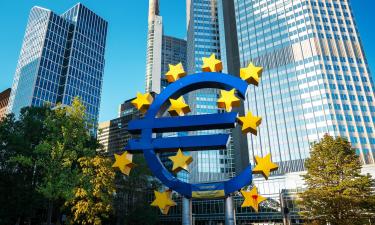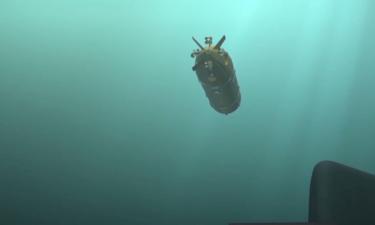Pragmatic, unpretentious style: cause of Merkel’s success
Angela Merkel barely scraped together enough votes to become Germany's first female chancellor. But two months after taking office she's soaring in the polls with her down-to-earth style and pragmatic approach. Merkel has found her feet quickly both at home and abroad with a recipe of blunt realism and careful consensus-building. She quickly dropped pre-election calls for radical steps such as tackling Germany's powerful unions which could have irked her coalition partners and unsettled voters.
The latest rating of the country's top 20 politicians by Infratest Dimap published in Spiegel newsweekly showed that 85 percent of those surveyed wanted her to "play an important role" in the future, the long-running poll's stock question. That was a jump of 22 percent since October, when the conservative leader began coalition talks with predecessor Gerhard Schroeder's Social Democrats.
It was also higher than anything Schroeder or Merkel's political mentor, Helmut Kohl, ever enjoyed. Among members of her own conservative Christian Democratic Union, she is at 99 percent, difficult to improve on. The poll surveyed 1,000 people Jan. 17-18.
And this from a candidate whose party barely scraped past Schroeder's, with a 35.2 to 34.2 percent win in September, after leading by as much as 20 points in the polls. Her left-right coalition has quickly passed legislation aimed at taming Germany's large budget deficit by cutting subsidies to homeowners, and to spur the economy with targeted spending. It has meanwhile dodged more painful measures to cut labor costs and put off a hike in value-added tax until next year.
Foreign policy has helped her too. Fellow European leaders have credited her with helping secure a deal on the EU's future budget, and she made well-received visits to Moscow and Washington. She appears to have succeeded in thawing the diplomatic chill between Berlin and Washington, without giving up Germany's refusal to send troops to Iraq and while underlining her opposition to the prison camp at Guantanamo Bay, Cuba.
Events and the mammoth task of reforming Germany's expensive welfare state will eventually test Merkel's popularity, and likely curtail the laudatory newspaper coverage she has enjoyed since taking office on Nov. 22, says one prominent pollster.
"Points that were seen as negative before are suddenly positives," cautions Manfred Guellner, head of the Forsa polling agency. "This is all very fragile." Some commentators suggest Merkel's success is as much due to style as policy.
Before her election, Merkel was subjected to constant sniping from within her male-dominated Christian Democratic Union. Newspaper picked unflattering photos and portrayed her as a power-hungry loner with few allies within the party.
Public opinion, though, has quickly warmed to the former scientist who can appear a bit embarrassed at official ceremonies and rarely sets pulses racing with her public speaking. She has also belatedly brushed up her image with a change of hairstyle and a newly discovered readiness to smile.
That is a strong contrast to the charismatic and media-savvy Schroeder, whose rhetorical skills almost helped him snatch a shock third term in the September election. "There is a general sense of relief about the switch from theatrical production to objectivity which Angela Merkel represents," sociologist and author Heinz Bude wrote in Die Zeit weekly, reports the AP. N.U.
Subscribe to Pravda.Ru Telegram channel, Facebook, RSS!





